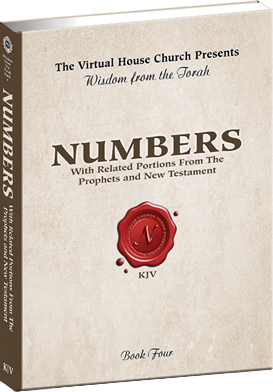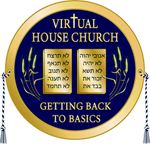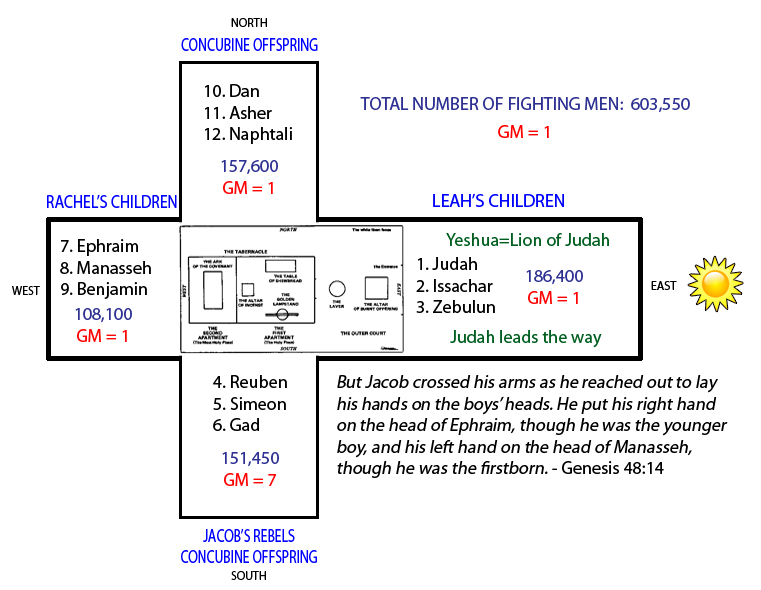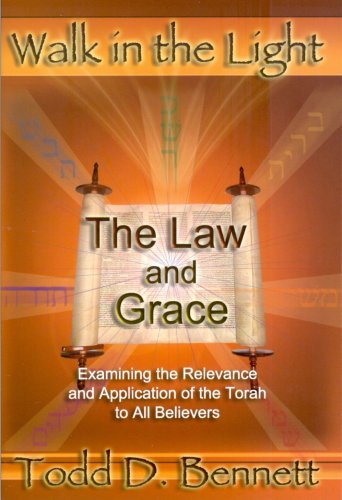Numbers Week 40: Balak

Numbers Bible Study:
Balak (Balak)
If you are currently viewing this on a mobile device, click the pic below to go to the much more responsive, mobile friendly version of this page.
The Scriptures for this week’s study:
QUICK SUMMARY OF THIS TORAH PORTION:
ARCHIVE OF OUR STUDIES:
2013 Broadcast:
2014 Broadcast:
2017 Broadcast:
2020 Broadcast:
2021 Broadcast:
STUDIES DONE BY OTHERS:
Ardelle’s “Your Living Waters”
Torah Commentary:
Workbook Discussion Questions:
How does this week’s Torah Portion Relate to the Haftarah and Brit Chadasha Portions?
What did you find most interesting about this week’s reading?
What is the general theme of this reading and how does it apply to our lives today?
Notes From This Study:
Isaiah 46:10
King James Version (KJV)
10 Declaring the end from the beginning, and from ancient times the things that are not yet done, saying, My counsel shall stand, and I will do all my pleasure:
1 Corinthians 10:11
New Revised Standard Version (NRSV)
11 These things happened to them to serve as an example, and they were written down to instruct us, on whom the ends of the ages have come.
-
-
- who you are (Genesis)
- where you should be going (Exodus)
- to be Set Apart and Holy (Leviticus)
- to Trust YHWH as He guides you (Numbers)
- to OBEY HIS INSTRUCTIONS so you may Live (Deuteronomy)
-
This will not be too hard for you, because Messiah laid down His Life to make it possible for you to “Get in Covenant” with His Father! He even sent His Set Apart Spirit to give you strength to finish the Race! If you think of yourself as a “Gentile Christian” you may be suffering from Spiritual Identity Theft. The only Cure is to start at the very BEGINNING.
The Tabernacle, the People and the Cross:
The Temple Video:
(note: I don’t agree with all of this person’s views, but I do think he is correct concerning the location of the Temple)
The Nicolaitan Church Model:
Revelation 2:13 (NLT)
I know that you live in the city where Satan has his throne, yet you have remained loyal to me. You refused to deny me even when Antipas, my faithful witness, was martyred among you there in Satan’s city.
Nicolaitans were one of the heretical sects that plagued the churches at Ephesus and at Pergamum, according to Revelation 2:6,15.
But this thou hast, that thou hatest the deeds of the Nicolaitans, which I also hate. -- Revelation 2:6
Have you ever wondered who the “Nicolaitans” were, mentioned in the book of Revelation? Whoever they were, Jesus loathed their doctrine and hated their deeds. Let’s delve into this subject today to see if we can ascertain the identity of this group. What was their damnable doctrine? What deeds were they committing that elicited such a strong reaction from Jesus?
Let’s begin in Revelation 2:6, where Jesus told the church of Ephesus, “But this thou hast [in your favor], that thou hatest the deeds of the Nicolaitans, which I also hate.” Jesus was proud of the church of Ephesus for their “hatred” of the deeds of the Nicolaitans, which He also “hated.” The word “hate” is a strong word, so let’s see exactly what it means. It comes from the Greek word miseo, which means to hate, to abhor, or to find utterly repulsive. It describes a person who has a deep-seated animosity, who is antagonistic to something he finds to be completely objectionable. He not only loathes that object, but rejects it entirely. This is not just a case of dislike; it is a case of actual hatred.
The thing Jesus hated about them was their “deeds.” The word “deeds” is the Greek word erga, which means works. However, this word is so all-encompassing that it pictures all the deeds and behavior of the Nicolaitans – including their actions, beliefs, conduct, and everything else connected to them.
The name “Nicolaitans” is derived from the Greek word nikolaos, a compound of the wordsnikos and laos. The word nikos is the Greek word that means to conquer or to subdue. The word laos is the Greek word for the people. It is also where we get the word laity. When these two words are compounded into one, they form the name Nicolas, which literally means one who conquers and subdues the people. It seems to suggest that the Nicolaitans were somehow conquering and subduing the people. Thus, as a symbolic reference, many believe that the “teaching of the Nicolaitans” refers to domination of the people (or lording over them). Dominating the people goes against the teaching of Jesus in Matthew 20:25-28.
Ireneus and Hippolytus, two leaders in the Early Church who recorded many of the events that occurred in the earliest recorded days of Church history, said the Nicolaitans were the spiritual descendants of Nicolas of Antioch, who had been ordained as a deacon in Acts 6:5. That verse says,
“And the saying pleased the whole multitude: and they chose Stephen, a man full of faith and of the Holy Ghost, and Philip, and Prochorus, and Nicanor, and Timon, and Parmenas, and Nicolas a proselyte of Antioch.”
We know quite a lot of information about some of these men who were chosen to be the first deacons, whereas little is known of others. For instance, we know that the chief criteria for their selection was that they were men “…of honest report, full of the Holy Spirit and wisdom…”(v. 3). Once they had been chosen, they were presented by the people to the apostles, who laid hands on them, installing and officially ordaining them into the deaconate.
Nicolas
Acts 6:5 tells us that this Nicolas was “a proselyte of Antioch.” The fact that he was a proselyte tells us that he was not born a Jew but had converted from paganism to Judaism. Then he experienced a second conversion, this time turning from Judaism to Christianity. From this information, we know these facts about Nicolas of Antioch:
-
-
He came from paganism and had deep pagan roots, very much unlike the other six deacons who came from a pure Hebrew line. Nicolas’ pagan background meant that he had previously been immersed in the activities of the occult.
- He was not afraid of taking an opposing position, evidenced by his ability to change religions twice. Converting to Judaism would have estranged him from his pagan family and friends. It would seem to indicate that he was not impressed or concerned about the opinions of other people.
- He was a free thinker and very open to embracing new ideas and concepts. Judaism was very different from the pagan and occult world in which he had been raised. For him to shift from paganism to Judaism reveals that he was very liberal in his thinking, for most pagans were offended by Judaism. He was obviously not afraid to entertain or embrace new ways of thinking.
- When he converted to Christ, it was at least the second time he had converted from one religion to another. We don’t know if, or how many times, he shifted from one form of paganism to another before he became a Jewish proselyte. His ability to easily change religious “hats” implies that he was not afraid to switch direction in midstream and go a totally different direction.
-
According to the writings of the Early Church leaders, Nicolas taught a doctrine of compromise, implying that total separation between Christianity and the practice of occult paganism was not essential. From Early Church records, it seems apparent that this Nicolas of Antioch was so immersed in occultism, Judaism, and Christianity that he had a stomach for all of it. He had no problem intermingling these belief systems in various concoctions and saw no reason why believers couldn’t continue to fellowship with those still immersed in the black magic of the Roman empire and its countless mystery cults.
Occultism was a major force that warred against the Early Church. In Ephesus, the primary pagan religion was the worship of Diana (Artemis). There were many other forms of idolatry in Ephesus, but this was the primary object of occult worship in that city. In the city of Pergamos, there were numerous dark and sinister forms of occultism, causing Pergamos to be one of the most wicked cities in the history of the ancient world. In both of these cities, believers were lambasted and persecuted fiercely by adherents of pagan religions, forced to contend with paganism on a level far beyond all other cities.
It was very hard for believers to live separately from all the activities of paganism because paganism and its religions were the center of life in these cities. Slipping in and out of paganism would have been very easy for young or weak believers to do since most of their families and friends were still pagans. A converted Gentile would have found it very difficult to stay away from all pagan influence.
It is significant that the “deeds” and “doctrines” of the Nicolaitans are only mentioned in connection with the churches in these two occultic and pagan cities. It seems that the “doctrine” of the Nicolaitans was that it was alright to have one foot in both worlds and that one needn’t be so strict about separation from the world in order to be a Christian. This, in fact, was the “doctrine” of the Nicolaitans that Jesus “hated.” It led to a weak version of Christianity that was without power and without conviction – a defeated, worldly type of Christianity.
Nicolas’ deep roots in paganism may have produced in him a tolerance for occultism and paganism. Growing up in this perverted spiritual environment may have caused him to view these belief systems as not so damaging or dangerous. This wrong perception would have resulted in a very liberal viewpoint that encouraged people to stay connected to the world. This is what numerous Bible scholars believe about the Nicolaitans.
This kind of teaching would result in nothing but total defeat for its followers. When believers allow sin and compromise to be in their lives, it drains away the power in the work of the Cross and the power of the Spirit that is resident in a believer’s life. This is the reason the name Nicolas is so vital to this discussion. The evil fruit of Nicolas’ “doctrine” encouraged worldly participation, leading people to indulge in sin (which is defined by the Bible as lawLESSness) and a lowered godly standard. In this way he literally conquered the people.
God wants to make sure we understand the doctrine the Nicolaitans taught, so Balaam’s actions are given as an example of their doctrine and actions. Revelation 2:14,15 says,
“But I have a few things against thee, because thou hast there them that hold the doctrine of Balaam, who taught Balac to cast a stumblingblock before the children of Israel, to eat things sacrificed unto idols, and to commit fornication. So hast thou also them that hold the doctrine of the Nicolaitans, which thing I hate.”
When Balaam could not successfully cure the people of God, he used another method to destroy them. He seduced them into unbridled, sensual living by dangling the prostitutes of Moab before the men of Israel. Numbers 25:1-3 tells us,
“And Israel abode in Shittim, and the people began to commit whoredom with the daughters of Moab. And they [the daughters of Moab] called the people [the men of Israel] unto the sacrifices of their gods: and the people [the men of Israel] did eat, and bowed down to their gods. And Israel joined himself unto Baal-peor….”
Just as the men of Israel compromised themselves with the world and false religions, now the “doctrine” of the Nicolaitans was encouraging compromise. As you are well aware, compromise with the world always results in a weakened and powerless form of Christianity.
This was the reason Jesus “hated” the “doctrine” and the “deeds” of the Nicolaitans.
[Source]
Of even further interest, is the fact that the doctrine of the Nicolaitans appears to have been a form of antinomianism, which makes the fatal mistake that man can freely partake in sin (which is defined by the Bible as lawLESSness) because – supposedly – the Law of God is no longer binding. In our study, we see how the people of Israel often rebelled against Moses and the laws (instructions) he was giving to the people from YHVH.
Antinomianism comes from the Greek meaning lawless. In Christian theology it is a pejorative term for the teaching that Christians are under no obligation to obey the laws of ethics or morality. Few, if any, would explicitly call themselves “antinomian,” hence, it is usually a charge leveled by one group against an opposing group.
Antinomianism may be viewed as the polar opposite of legalism, the notion that obedience to a code of religious law is necessary for salvation. In this sense, both antinomianism and legalism are considered errant extremes.
Nicolaitans of the 2nd century seem to have continued and extended the views of the 1st century adherents, holding to the freedom of the flesh and sin, and teaching that the deeds of the flesh had no effect upon the health of the soul and consequently no relation to salvation.
Today, the doctrine is now largely taught that the gospel of Christ has made God’s law of no effect: that by “believing” we are released from the necessity of being doers of the Word. But this is the doctrine of the Nicolaitans, which Christ so unsparingly condemned in the book of Revelation.
More on the Nicolaitans:
http://www.lightsource.com/ministry/refuel-with-rick/articles/who-were-the-nicolaitans-and-what-was-their-doctrine-and-deeds--14510.html
http://www.newadvent.org/cathen/11067a.htm
http://www.triumphpro.com/nicolaitans.htm
http://www.theopedia.com/Nicolaitans
http://en.wikipedia.org/wiki/Nicolaism
Jeremiah 10 (KJV)
10 Hear ye the word which the Lord speaketh unto you, O house of Israel:
2 Thus saith the Lord, Learn not the way of the heathen, and be not dismayed at the signs of heaven; for the heathen are dismayed at them.
3 For the customs of the people are vain: for one cutteth a tree out of the forest, the work of the hands of the workman, with the axe.
4 They deck it with silver and with gold; they fasten it with nails and with hammers, that it move not.
Read about Hanukkah:
- 1 Maccabees 1 – 4
- http://judaism.about.com/od/holidays/a/hanukkah.htm
- http://www.jewfaq.org/holiday7.htm
- https://en.wikipedia.org/wiki/Hanukkah
- http://www.history.com/topics/hanukkah
If you want to celebrate something on December 25th, try REDEDICATING yourself to the things of YHVH and doing away with the PAGAN traditions! Consider also that Yeshua celebrated (or at least observed) this holiday too:
John 10 (KJV)
22 And it was at Jerusalem the feast of the dedication, and it was winter.
23 And Jesus walked in the temple in Solomon’s porch.
24 Then came the Jews round about him, and said unto him, How long dost thou make us to doubt? If thou be the Christ, tell us plainly.
25 Jesus answered them, I told you, and ye believed not: the works that I do in my Father’s name, they bear witness of me.
26 But ye believe not, because ye are not of my sheep, as I said unto you.
27 My sheep hear my voice, and I know them, and they follow me:
28 And I give unto them eternal life; and they shall never perish, neither shall any man pluck them out of my hand.
29 My Father, which gave them me, is greater than all; and no man is able to pluck them out of my Father’s hand.
30 I and my Father are one.
As for the Last Days and the Antichrist:
Numbers 24 (KJV)
14 And now, behold, I go unto my people: come therefore, and I will advertise thee what this people shall do to thy people in the latter days.
15 And he took up his parable, and said, Balaam the son of Beor hath said, and the man whose eyes are open hath said:
16 He hath said, which heard the words of God, and knew the knowledge of the most High, which saw the vision of the Almighty, falling into a trance, but having his eyes open:
17 I shall see him, but not now: I shall behold him, but not nigh: there shall come a Star out of Jacob, and a Sceptre shall rise out of Israel, and shall smite the corners of Moab, and destroy all the children of Sheth.
18 And Edom shall be a possession, Seir also shall be a possession for his enemies; and Israel shall do valiantly.
19 Out of Jacob shall come he that shall have dominion, and shall destroy him that remaineth of the city.
20 And when he looked on Amalek, he took up his parable, and said, Amalek was the first of the nations; but his latter end shall be that he perish for ever.
21 And he looked on the Kenites, and took up his parable, and said, Strong is thy dwelling place, and thou puttest thy nest in a rock.
22 Nevertheless the Kenite shall be wasted, until Asshur shall carry thee away captive.
23 And he took up his parable, and said, Alas, who shall live when God doeth this!
24 And ships shall come from the coast of Chittim, and shall afflict Asshur, and shall afflict Eber, and he also shall perish for ever.
Micah 5 (KJV)
4 And he shall stand and feed in the strength of the Lord, in the majesty of the name of the Lord his God; and they shall abide: for now shall he be great unto the ends of the earth.
5 And this man shall be the peace, when the Assyrian shall come into our land: and when he shall tread in our palaces, then shall we raise against him seven shepherds, and eight principal men.
6 And they shall waste the land of Assyria with the sword, and the land of Nimrod in the entrances thereof: thus shall he deliver us from the Assyrian, when he cometh into our land, and when he treadeth within our borders.
7 And the remnant of Jacob shall be in the midst of many people as a dew from the Lord, as the showers upon the grass, that tarrieth not for man, nor waiteth for the sons of men.
8 And the remnant of Jacob shall be among the Gentiles in the midst of many people as a lion among the beasts of the forest, as a young lion among the flocks of sheep: who, if he go through, both treadeth down, and teareth in pieces, and none can deliver.
9 Thine hand shall be lifted up upon thine adversaries, and all thine enemies shall be cut off.
The Tribulation Protection Plan:
Exodus 34:21-24 (NLT)
21 “You have six days each week for your ordinary work, but on the seventh day you must stop working, even during the seasons of plowing and harvest.
22 “You must celebrate the Festival of Harvest with the first crop of the wheat harvest, and celebrate the Festival of the Final Harvest at the end of the harvest season. 23 Three times each year every man in Israel must appear before the Sovereign, the Lord, the God of Israel. 24 I will drive out the other nations ahead of you and expand your territory, so no one will covet and conquer your land while you appear before the Lord your God three times each year.
Leviticus 26:3-13 (NRSV)
3 If you follow my statutes and keep my commandments and observe them faithfully, 4 I will give you your rains in their season, and the land shall yield its produce, and the trees of the field shall yield their fruit.5 Your threshing shall overtake the vintage, and the vintage shall overtake the sowing; you shall eat your bread to the full, and live securely in your land. 6 And I will grant peace in the land, and you shall lie down, and no one shall make you afraid; I will remove dangerous animals from the land, and no sword shall go through your land. 7 You shall give chase to your enemies, and they shall fall before you by the sword. 8 Five of you shall give chase to a hundred, and a hundred of you shall give chase to ten thousand; your enemies shall fall before you by the sword. 9 I will look with favor upon you and make you fruitful and multiply you; and I will maintain my covenant with you. 10 You shall eat old grain long stored, and you shall have to clear out the old to make way for the new. 11 I will place my dwelling in your midst, and I shall not abhor you. 12 And I will walk among you, and will be your God, and you shall be my people. 13 I am the Lord your God who brought you out of the land of Egypt, to be their slaves no more; I have broken the bars of your yoke and made you walk erect.
Also listen to John William Galt (the voice of the movies) reading Psalm 91:



